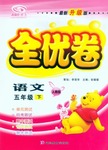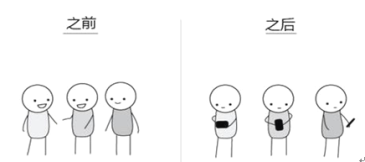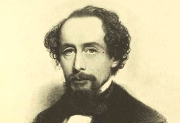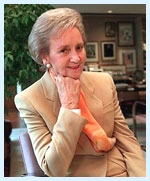
°æƒø°øŒ“π˙≈©“µ…˙≤˙“Ú‘‚ ÐÀ·”Í∂¯‘Ï≥…µƒÀ ß√øƒÍ∏þ¥Ô15“⁄‘™°£Œ™¡À”––ßøÿ÷∆À·”Í£¨ƒø«∞π˙ŒÒ‘∫“—≈˙◊º¡À°∂À·”Íøÿ÷∆«¯∫Õ∂˛—ıªØ¡ÚŒ€»æøÿ÷∆«¯ªÆ∑÷∑Ω∞∏°∑µ»∑®πÊ°£ƒ≥ µ—È–°◊È≤…ºØ¡ÚÀ·–ÕÀ·”Í—˘∆∑£¨ÀÊ◊≈ ±º‰µƒÕ∆“∆£¨∂ý¥Œ≤‚∂®∏√—˘∆∑µƒpH£¨µ√µΩ¡À±Ì÷– ˝æð£∫(“—÷™pH‘Ω–°£¨»Ð“∫µƒÀ·–‘‘Ω«ø)
±º‰(h) | 0 | 8 | 16 | 24 | 32 | 40 | 48 |
pH | 5.0 | 4.8 | 4.5 | 4.3 | 4.2 | 4.0 | 4.0 |
(1)À·”Í—˘∆∑∑≈÷√ ±pH±‰ªØµƒ÷˜“™‘≠“Ú «(”√ªØ—ß∑Ω≥Ã Ω±Ì æ)____________________°£
(2)»Áπ˚Ω´∏’»°—˘µƒ…œ ˆÀ·”Í∫Õ◊‘¿¥ÀƪÏ∫œ£¨pHΩ´________(ÃÓ°∞‘ˆ¥Û°±°∞ºı–°°±ªÚ°∞≤ª±‰°±)£¨‘≠“Ú «(”√ªØ—ß∑Ω≥Ã Ω±Ì æ)____________________°£
(3)ƒ„»œŒ™ºı…ŸÀ·”Í≤˙…˙ø…≤…»°µƒ¥Î © «___________(ÃÓ◊÷ƒ∏)°£
¢Ÿ…Ÿ”√√∫◊˜»º¡œ ¢⁄∞—π§≥ß—Ã¥—‘Ï∏þ ¢€»º¡œÕ—¡Ú ¢Ð‘⁄“—À·ªØµƒÕ¡»¿÷–º” ت“ ¢ðø™∑¢–¬ƒÐ‘¥
A£Æ¢Ÿ¢⁄¢€ B£Æ¢⁄¢€¢Ð¢ð C£Æ¢Ÿ¢€¢ð D£Æ¢Ÿ¢€¢Ð¢ð
°æ¥∞∏°ø(1)SO2+H2O![]() H2SO3£¨2H2SO3+O2===2H2SO4
H2SO3£¨2H2SO3+O2===2H2SO4
(2)ºı–° H2SO3+Cl2+H2O===2HCl+H2SO4
(3)C
°æΩ‚Œˆ°ø(1)À·”Í∑≈÷√ ±pH±‰–°£¨∆‰‘≠“Ú «”ÍÀÆ÷–µƒH2SO3±ªø’∆¯÷–µƒO2—ıªØÀ˘÷¬°£
(2)”ÍÀÆ∫Õ◊‘¿¥ÀƪÏ∫œ£¨”¶øº¬«H2SO3”Î◊‘¿¥ÀÆ÷–µƒCl2∑¢…˙—ıªØªπ‘≠∑¥”¶∂¯…˙≥…¡ÚÀ·∫Õ—ŒÀ·£¨ πÀ·–‘‘ˆ«ø°£
(3)ºı…ŸÀ·”͵ƒ–Œ≥…±ÿ–κı…ŸSO2≈≈∑≈£¨Ω´√∫◊™ªØŒ™«ÂΩýƒÐ‘¥(»Á√∫µƒ∆¯ªØ∫Õ“∫ªØ)£¨»º¡œÕ—¡Ú°¢πáڣ¨ø™∑¢≤ª∫¨¡Úµƒ–¬ƒÐ‘¥(»Á«‚ƒÐ°¢∫ÀƒÐµ»)£¨∂º «”––ߥΠ©°£


 ABCøºÕı»´”≈æÌœµ¡–¥∞∏
ABCøºÕı»´”≈æÌœµ¡–¥∞∏
| ƒÍº∂ | ∏þ÷–øŒ≥à | ƒÍº∂ | ≥ı÷–øŒ≥à |
| ∏þ“ª | ∏þ“ª√‚∑—øŒ≥ÃÕ∆ºˆ£° | ≥ı“ª | ≥ı“ª√‚∑—øŒ≥ÃÕ∆ºˆ£° |
| ∏þ∂˛ | ∏þ∂˛√‚∑—øŒ≥ÃÕ∆ºˆ£° | ≥ı∂˛ | ≥ı∂˛√‚∑—øŒ≥ÃÕ∆ºˆ£° |
| ∏þ»˝ | ∏þ»˝√‚∑—øŒ≥ÃÕ∆ºˆ£° | ≥ı»˝ | ≥ı»˝√‚∑—øŒ≥ÃÕ∆ºˆ£° |
ø∆ƒø£∫∏þ÷–µÿ¿Ì ¿¥‘¥£∫ –գ∫
°æƒø°ø∏˘æð¬˛ª≠°∂”– ÷ª˙÷Æ«∞∫Õ÷Æ∫Ûµƒ…˙ªÓ°∑£¨∞¥“™«ÛÕÍ≥…–°Ã‚°£

£®1£©ºÚ“™√Ë ˆª≠√ʵƒƒ⁄»ð£¨≤¢”√“ª∏ˆÀƒ◊÷∂ÔÔ∏≈¿®µ⁄∂˛∑˘¬˛ª≠µƒƒ⁄»ð°£
¥£∫_____________________________________________________________________
_________________________________________________________________________
£®2£©ø¥¡À’‚∑˘¬˛ª≠£¨ƒ„µ√µΩ‘ı—˘µƒ∆Ù æ£ø
¥£∫_____________________________________________________________________
_________________________________________________________________________
≤Èø¥¥∞∏∫ÕΩ‚Œˆ>>
ø∆ƒø£∫∏þ÷–µÿ¿Ì ¿¥‘¥£∫ –գ∫
°æƒø°ø…Ë∏¥ ˝z£Ω2m£´£®4£≠m2£©i£¨µ± µ ˝m»°∫Œ÷µ ±£¨∏¥ ˝z∂‘”¶µƒµ„£∫
£®1£©Œª”⁄–È÷·…œ£ø
£®2£©Œª”⁄“ª°¢»˝œÛœÞ£ø
£®3£©Œª”⁄“‘‘≠µ„Œ™‘≤–ƒ£¨“‘4Œ™∞Îæ∂µƒ‘≤…œ£ø
≤Èø¥¥∞∏∫ÕΩ‚Œˆ>>
ø∆ƒø£∫∏þ÷–µÿ¿Ì ¿¥‘¥£∫ –գ∫
°æƒø°ø‘ƒ∂¡¿ÌΩ‚
‘ƒ∂¡œ¬¡–∂ÃŒƒ£¨¥”√øÂÀ˘∏¯µƒÀƒ∏ˆ—°œÓ£®A°¢B°¢C∫ÕD£©÷–£¨—°≥ˆ◊Óº——°œÓ°£

Charles Dickens (1812°™1870), the great nineteenth century English novelist, was born near Portsmouth. His father ran heavily into debt (’Æ) and when he was twelve, he had to go and work in a factory. The only formal education he received was a two-year schooling at a school for poor children. In fact, he had to teach himself all he knew. He worked for a time in a lawyer°Øs office. After that, he worked as a reporter in the law courts, and later for London newspapers. His life as a writer of novels began in 1833 with short stories and essays in newspapers, and in 1837 his novel °∞The Pickwick Papers°± made him the most popular author at his time in England.
He was a great observer (π€≤Ï’þ) of people and their places because he was concerned about life and conditions in mid-nineteenth century London. He wrote 19 novels all his life and in many of them, Dickens gave a picture of all classes of England society, showing deep concern for the poor.
Many of his novels like °∞Oliver Twist°±, °∞David Copperfield°±, °∞Nicholas Nickleby°±, °∞Great Expectations°±, °∞A Tale of Two Cities°± and so on drew attention to the unfair social conditions that existed in England over a hundred years ago. Dickens wished to see improvement in the living conditions of the poor, but failed to find any useful method to achieve that goal.
°æ1°ø Dickens only received a little formal education because ________.
A. he wanted to teach himself
B. he wanted to work and made a lot of money
C. he was too poor to afford any more formal education
D. he needed some working experiences to become a writer
°æ2°øAccording to Dickens, the society at his time in England was ________.
A. rich B. just C. comfortable D. unfair
°æ3°ø Which of the following novel made Dickens the most popular writer at his time in England?
A. Oliver Twist. B. The Pickwick Papers.
C. A Tale of Two Cities. D. Great Expectations.
°æ4°ø According to the passage, which of the following about Dickens is TRUE?
A. He studied writing novels at school.
B. He wrote more than twenty novels all his life.
C. He began to write fictions when he was 21 years old.
D. He found some good ways to improve the lives of the poor.
≤Èø¥¥∞∏∫ÕΩ‚Œˆ>>
ø∆ƒø£∫∏þ÷–µÿ¿Ì ¿¥‘¥£∫ –գ∫
°æƒø°ø∂ÃŒƒ∏ƒ¥Ì
ºŸ∂®”¢”ÔøŒ…œ¿œ ¶“™«ÛÕ¨◊¿÷ƺ‰Ωªªª–Þ∏ƒ◊˜Œƒ£¨«Îƒ„–Þ∏ƒƒ„Õ¨◊¿–¥µƒ“‘œ¬◊˜Œƒ°£Œƒ÷–π≤”–10¥¶”Ô—‘¥ÌŒÛ£¨√øæ‰÷–◊Ó∂ý”–¡Ω¥¶£¨√ø¥¶¥ÌŒÛΩˆ…ʺ∞“ª∏ˆµ•¥ µƒ‘ˆº”°¢…æ≥˝ªÚ–Þ∏ƒ°£
‘ˆº”£∫‘⁄»±¥ ¥¶º”“ª∏ˆ¬©◊÷∑˚∫≈(°ƒ)£¨≤¢‘⁄∆‰œ¬√Ê–¥≥ˆ∏√º”µƒ¥ °£
…æ≥˝£∫∞—∂ý”ýµƒ¥ ”√–±œþ(£Ð)ªÆµÙ°£
–Þ∏ƒ£∫‘⁄¥Ìµƒ¥ œ¬ªÆ“ª∫·œþ£¨≤¢‘⁄∏√¥ œ¬√Ê–¥≥ˆ–Þ∏ƒ∫Ûµƒ¥ °£
◊¢“‚£∫
1. √ø¥¶¥ÌŒÛº∞∆‰–Þ∏ƒæ˘œÞ“ª¥ £ª
2. ÷ª‘ –Ì–Þ∏ƒ10¥¶£¨∂ý’þ(¥”µ⁄11¥¶∆)≤ªº∆∑÷°£
Every day, in all kinds of weather, a lot of people go jogging (running slowly). Why has jogging became so popular? Most people start jogging because you hear it is a very good form of exercise. Jogging makes the heart strong and help people control their weight and stay slim. If you jog regular, you needn°Øt take pills or skip meals to lose weight. Jogging can also make you to feel better.
Donald Robbins, he is 42 years old and works in an office, began jogging a few years later because he felt he was overweight. At first he could only run 300 metres, and two years later, he ran a marathon °™ over 42 kilometres.
Do you jog? If you do, be sure to ask your doctor on advice. Does jogging cost much? Almost nothing. But it is very important to have a pair of shoe that are made especially for jogging. If not, when you run on hard ground for a long time it may cause your feet to hurt.
≤Èø¥¥∞∏∫ÕΩ‚Œˆ>>
ø∆ƒø£∫∏þ÷–µÿ¿Ì ¿¥‘¥£∫ –գ∫
°æƒø°ø
 Did you see American figure skater, Jeremy Abbott, crash to the ice during the short program at the Sochi Olympics, rolling into the wall, clutching his side in pain. Ten seconds later, he got up and continued his skate°™despite the pain, embarrassment and fear. All I could think was: this kid°Øs got courage. In business we have a word for it°™resilience, the ability to gain strengths and confidence from overcoming unpleasant events.
Did you see American figure skater, Jeremy Abbott, crash to the ice during the short program at the Sochi Olympics, rolling into the wall, clutching his side in pain. Ten seconds later, he got up and continued his skate°™despite the pain, embarrassment and fear. All I could think was: this kid°Øs got courage. In business we have a word for it°™resilience, the ability to gain strengths and confidence from overcoming unpleasant events.
However, opposite examples appeared in Sochi Olympics as well. For them, failure is someone else°Øs fault, because they do not accept personal responsibility. Therefore, they have to pay a high price for this attitude. After years of studying failure, I have learned one thing: modesty and open-mindedness in the face of mistakes is the single best thing you can do to improve results. Everyone fails, but not everyone recovers from failure. The key is to learn from it rather than get beaten by it.
The good news is that each of us has the potential to live a resilient life on and off the job. It may be difficult, but that just makes it all the more powerful and important. If you believe the above paragraph to be true, then you°Øre probably more resilient than you think you are. It takes confidence to be resilient but that too much confidence is a killer is so true of leadership. For example, Ron Johnson, the ill-fated CEO of JC Penney, was so stubborn that he completely missed all sorts of signals from employees and customers and instead listened to all those who agreed with him, which failed his strategy. Bouncing back from failure requires that you recognize something has gone wrong, and you were the one who made it happen.
The challenge of resilience is not just about our work. When parents help their kids deal with every challenging situation, they are doing an unhelpful action to their children. Parents want to protect their kids from failure, but doing so takes away the opportunity from them to practice not
just a life skill but an essential work skill. When self-esteem becomes more important than results, we are accidentally training young people to become less adaptable, not more.
Resilience is not just about getting up off the floor, but also being ready for whatever comes next, even when you don°Øt know what it is. Failures and setbacks are no longer unusual events, but regular features of a dynamic, competitive and highly demanding work environment. Getting up to finish your skate is no longer optional.
°æ1°øThe example of Jeremy Abbott shows that one should ______.
A. recover from failure
B. stick to his own viewpoint
C. take others°Ø opinions to heart
D. challenge difficulties bravely
°æ2°øAccording to the author, what can best build up resilience?
A. Being positive and powerful.
B. Being competitive and helpful.
C. Being modest and open-minded.
D. Being confident and responsible.
°æ3°ø Which of the following examples shows us resilience?
A.
B. A determined athlete practices skating hard every day.
C. A confident leader persuades his staff to follow his plan.
D. A student has got a low grade but continues to work hard.
°æ4°øWhich might be the best title for the passage?
A. An Example of Resilience: Ron Johnson
B. Resilience: A Lesson from Sochi
C. Optional Challenges of Resilience
D. Resilience in Family Education
≤Èø¥¥∞∏∫ÕΩ‚Œˆ>>
ø∆ƒø£∫∏þ÷–µÿ¿Ì ¿¥‘¥£∫ –գ∫
°æƒø°ø ∂ÃŒƒ∏ƒ¥Ì
ºŸ∂®”¢”ÔøŒ…œ¿œ ¶“™«ÛÕ¨◊¿÷ƺ‰Ωªªª–Þ∏ƒ◊˜Œƒ£¨«Îƒ„–Þ∏ƒƒ„Õ¨◊¿–¥µƒ“‘œ¬◊˜Œƒ°£Œƒ÷–π≤”–10¥¶”Ô—‘¥ÌŒÛ£¨√øæ‰÷–◊Ó∂ý”–¡Ω¥¶°£√ø¥¶¥ÌŒÛΩˆ…ʺ∞“ª∏ˆµ•¥ µƒ‘ˆº”°¢…æ≥˝ªÚ–Þ∏ƒ°£
‘ˆº”£∫‘⁄»±¥ ¥¶º”“ª∏ˆ¬©◊÷∑˚∫≈(/\)£¨≤¢‘⁄∆‰œ¬√Ê–¥≥ˆ∏√º”µƒ¥ £ª
…æ≥˝£∫∞—∂ý”ýµƒ¥ ”√–±œþ(\)ªÆµÙ£ª
–Þ∏ƒ£∫‘⁄¥Ì¥ œ¬ª≠“ª∫·œþ£¨≤¢‘⁄∏√¥ œ¬√Ê–¥≥ˆ–Þ∏ƒ∫Ûµƒ¥ °£
◊¢“‚£∫1. √ø¥¶¥ÌŒÛº∞∆‰–Þ∏ƒæ˘ΩˆœÞ“ª¥ £ª
2. ÷ª‘ –Ì–Þ∏ƒ10¥¶£¨∂ý’þ(¥”µ⁄11¥¶∆)≤ªº∆∑÷°£
Two years before, I traveled to Brazil and I rented for a car. Unfortunate, I had an accident and hit another car, and I needed to stay in a hospital for at least two week. I called my parents, so I did not tell them what had happened. I knew that they will be worried about myself because I was so farther away, and that my mother would not sleep if she knew. Therefore, I told them interested stories and how I was enjoying Brazil. As a result, nobody knew truth. I still think that it was the right thing to do.
≤Èø¥¥∞∏∫ÕΩ‚Œˆ>>
ø∆ƒø£∫∏þ÷–µÿ¿Ì ¿¥‘¥£∫ –գ∫
°æƒø°ø ∂ÃŒƒ∏ƒ¥Ì
ºŸ∂®”¢”ÔøŒ…œ¿œ ¶“™«ÛÕ¨◊¿÷ƺ‰Ωªªª–Þ∏ƒ◊˜Œƒ£¨«Îƒ„–Þ∏ƒƒ„Õ¨◊¿–¥µƒ“‘œ¬◊˜Œƒ°£Œƒ÷–π≤”–10¥¶”Ô—‘¥ÌŒÛ£¨√øæ‰÷–◊Ó∂ý”–¡Ω¥¶°£√ø¥¶¥ÌŒÛΩˆ…ʺ∞“ª∏ˆµ•¥ µƒ‘ˆº”°¢…æ≥˝ªÚ–Þ∏ƒ°£
‘ˆº”£∫‘⁄»±¥ ¥¶º”“ª∏ˆ¬©◊÷∑˚∫≈(°ƒ)£¨≤¢‘⁄∆‰œ¬√Ê–¥≥ˆ∏√º”µƒ¥ °£
…æ≥˝£∫∞—∂ý”ýµƒ¥ ”√–±œþ(£Ð)ªÆµÙ°£
–Þ∏ƒ£∫‘⁄¥Ìµƒ¥ œ¬ª≠“ª∫·œþ£¨≤¢‘⁄∏√¥ œ¬√Ê–¥≥ˆ–Þ∏ƒ∫Ûµƒ¥ °£
◊¢“‚£∫
1. √ø¥¶¥ÌŒÛº∞∆‰–Þ∏ƒæ˘ΩˆœÞ“ª¥ £ª
2. ÷ª‘ –Ì–Þ∏ƒ10¥¶£¨∂ý’þ(¥”µ⁄11¥¶∆)≤ªº∆∑÷°£
Which is known to all, nowadays the Internet is playing more and more important part in our daily life. In it, we can not only read news at home and abroad but also get so much information as possible. We are often send e-mails to our classmates. We can make telephone call to our families as well as our friends. However, we can go to school on the net, read different kinds of books and even teach myself English. We can also enjoy music, watching sports and play computer games on the Net. We could do shopping even without leaving our homes.
≤Èø¥¥∞∏∫ÕΩ‚Œˆ>>
ø∆ƒø£∫∏þ÷–µÿ¿Ì ¿¥‘¥£∫ –գ∫
°æƒø°øB
 Katharine Graham, once described as £¢the most powerful woman in America£¢, was the owner and publisher of The Washington Post newspaper. Under her leadership, it became one of the most important newspapers in the country.
Katharine Graham, once described as £¢the most powerful woman in America£¢, was the owner and publisher of The Washington Post newspaper. Under her leadership, it became one of the most important newspapers in the country.
Katharine Graham was born in New York in 1917. Graduating from the University of Chicago in 1938, Katherine got a job as a reporter for a newspaper in San Francisco, California. In 1933, Katharine°Øs father bought a failing newspaper, The Washington Post. It was the least successful of five newspapers in Washington.
Soon Katharine returned to Washington and got a job editing letters to the editor of her father°Øs newspaper. In 1946, her husband Philip Graham became publisher of The Washington Post. When she was 46, her husband died, leaving Katharine Graham four children to raise and a newspaper to operate.
At first, she was concerned only with finding a way to keep control of The Washington Post until her sons were old enough to lead it. She had no training in business or experience in operating a large company and decided to learn. She hired excellent reporters and editors. In 1969, Missus Graham became publisher as well as president of The Washington Post company. In the 1970s, The Washington Post became famous around the world. Katharine Graham also played an important role in supporting women by employing more of them. When she was eighty years old, Katharine Graham wrote a very popular book called Personal History about her life, which won a Pulitzer prize for biography in 1998. Friends of Katharine Graham said she used her intelligence and bravery to improve the American media.
°æ1°ø Katharine Graham first worked as ___________.
A. a reporter B. an editor
C. a publisher D. a manager
°æ2°ø When Katharine°Øs father bought The Washington Post, __________.
A. it had been in business for a short time
B. it was one of the largest newspapers in the US
C. it was in a difficult situation
D. it had enjoyed great success and fame
°æ3°øThe most difficult time for Katharine came when __________.
A. her father died
B. her husband died
C. she took control of The Washington Post
D. she returned home to raise her four kids
°æ4°øWhat can we infer from the passage?
A. The newspaper was failing under Katharine°Øs control.
B. There were more women editors than men editors in The Washington Post.
C. Katharine probably had a difficult time operating the newspaper at first.
D. Katharine was best known for her book Personal History.
≤Èø¥¥∞∏∫ÕΩ‚Œˆ>>
π˙º —ß–£”≈—° - ¡∑œ∞≤·¡–±Ì - ‘¡–±Ì
∫˛±± °ª•¡™Õ¯Œ•∑®∫Õ≤ª¡º–≈œ¢æŸ±®∆Ωî | Õ¯…œ”–∫¶–≈œ¢æŸ±®◊®«¯ | µÁ–≈’©∆≠柱®◊®«¯ | …Ê¿˙ ∑–ÈŒÞ÷˜“”–∫¶–≈œ¢æŸ±®◊®«¯ | …Ê∆Û«÷»®æŸ±®◊®«¯
Œ•∑®∫Õ≤ª¡º–≈œ¢æŸ±®µÁª∞£∫027-86699610 柱®” œ‰£∫58377363@163.com